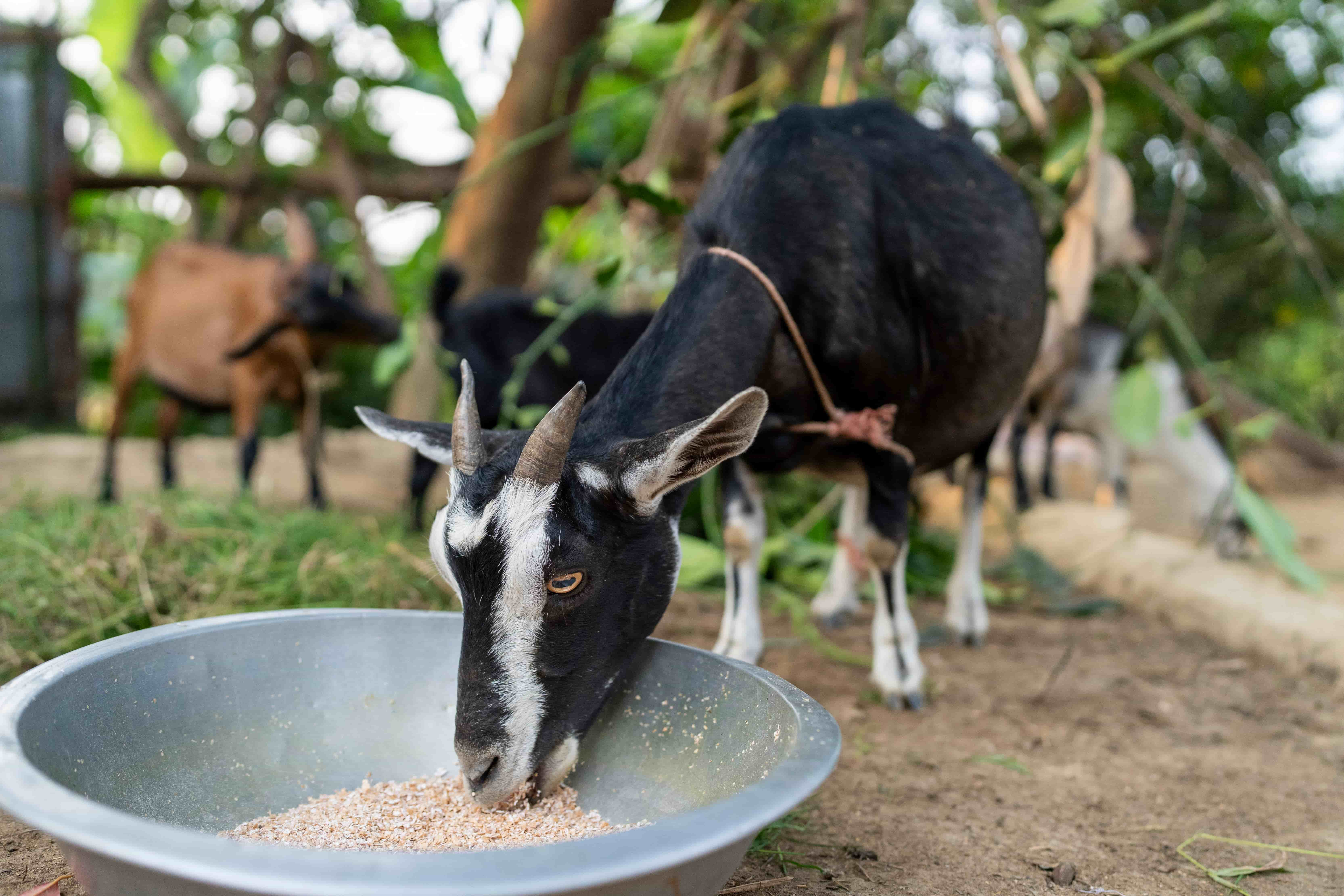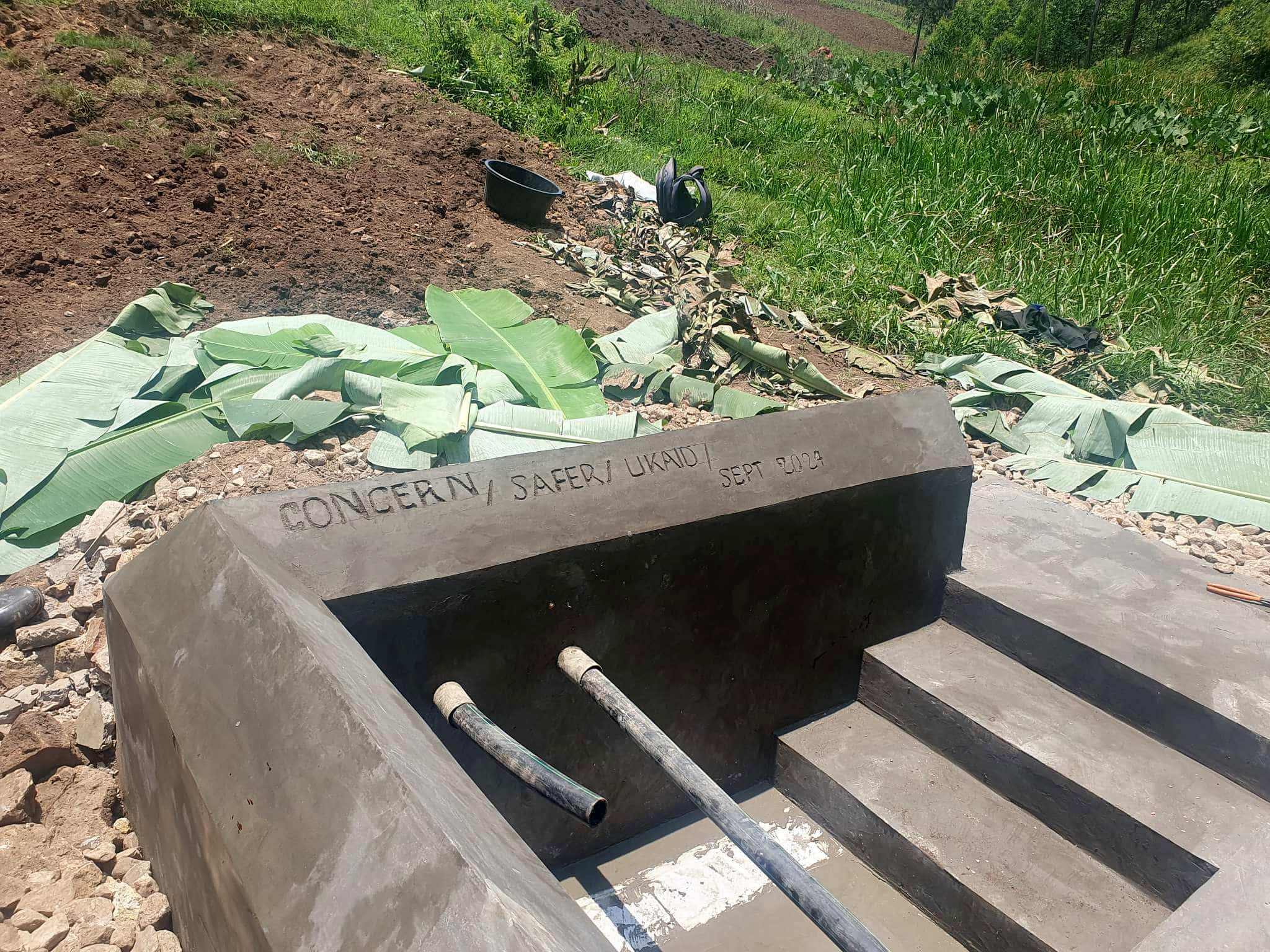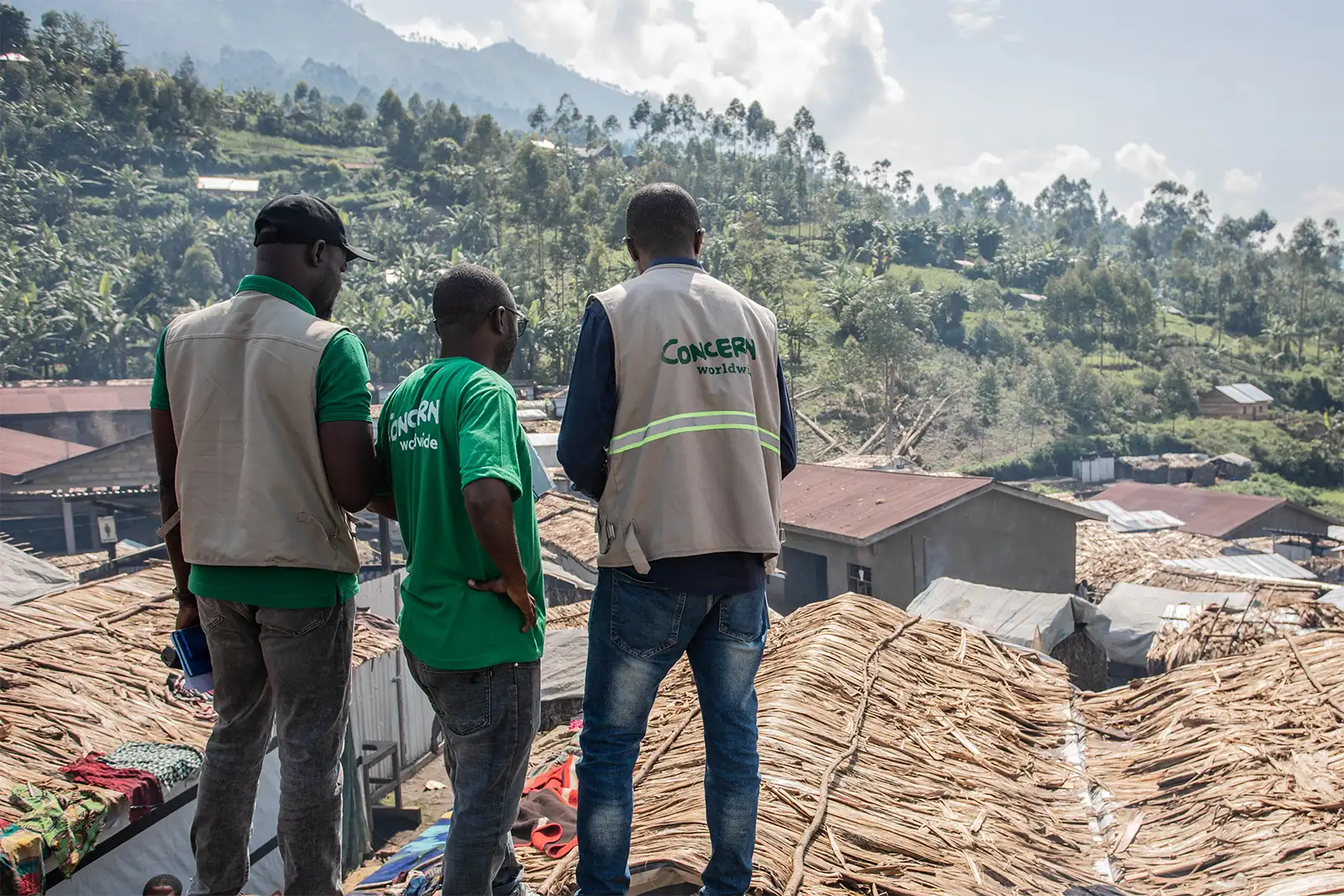In the eastern reaches of the Democratic Republic of Congo (DRC), the village of Kalengera in Rutshuru Territory has become an unlikely sanctuary for thousands of families. Recent skirmishes between the M23 rebel group and the Congolese army (FARDC) have sent people fleeing in all directions, while a fragile lull in the fighting has allowed some to trickle back home. But for returnees and the newly displaced alike, “home” is a relative term when you’re returning to rubble and scarcity.
Enter Concern Worldwide. In a place where hope has been in short supply, Concern has partnered with 3,919 families, or 21,413 people, in Kalengera to help provide life-changing humanitarian aid. Those are big numbers, but even more impressive are the individuals behind those statistics and the stories of resilience and survival that each represent.
Cash: The universal fixer-upper
It is a truism that money can’t buy happiness, but for those affected by the conflict in the DRC, cash can be even more of an emergency lifeline than direct provisions of food, medicine, or shelter. That’s why Concern’s Multi-Purpose Cash Assistance (MPCA) program was a game-changer. Every household in Kalengera qualified for assistance, which tells you everything you need to know about the level of need. Even so, to ensure that the aid was provided to those that truly need it, participants were registered and their identities checked at the distribution.
Yvette* and the art of survival
Then there’s Yvette*, who’s been holding down the fort since her husband was imprisoned months ago. When she gave birth to her third child, she couldn’t afford clothes for the baby or pay her medical bills.
“My child was exposed to the weather, and because of a lack of food, I went to ask for help from people of good will,” she says.
The cash transfer from Concern allowed Yvette to buy clothes for her newborn and other essentials – a tremendous example of the power of cash transfers, allowing recipients preserve their own autonomy, make decisions about how to improve their family’s lives, and survive through an emergency.
Charline’s goat gambit

Charline’s story adds a touch of entrepreneurial flair to the mix. After an accident left her with a fractured leg, she found it nearly impossible to work or tend to her fields. Concern’s MPCA program gave her 505,000 Congolese francs (about $175), which she used to cover medical expenses and buy food.
“This amount of money allowed me to find something to eat,” she says. “The rest of the money, I plan to use it to cultivate my field and also buy a goat to continue to take care of myself.”
A goat, you ask? Why not? Their reputation for sturdiness and survival, along with their value in human nutrition makes goats the most popular of all the four-legged food sources in low and middle-income countries. For people like Charline, a cash transfer not only allows them to survive an emergency, but to set themselves up to live without ongoing aid in the future.
Water, water (not quite) everywhere

Of course, cash wasn’t the only thing Kalengera was lacking. The village’s water supply network was in such a state of disrepair that it might as well have been decorative. Concern stepped in, partially rehabilitating the network and constructing an additional water source. The result? Enough water for the entire population, which is a definite upgrade from the untreated rainwater families were relying on.
Concern also installed three water catchment systems in the central market, health center, and two schools, because nothing says “progress” like the ability to wash your hands. At the household level, 45 families received newly constructed latrines and maintenance kits, providing a huge improvement in quality of life and public health. After all, access to latrines carries a multitude of benefits compared to the alternatives.
A community on the mend
In Kalengera, the scars of conflict are everywhere, but so is the resilience of its people. Thanks to the support and partnership of Concern’s tireless team, families like Mariam’s, Yvette’s, and Charline’s are finding their footing again. It’s not a perfect situation—there’s no such thing in a place like this—but it’s a start.
As Mariam put it, “Thanks to you, I’m living at home today.” In a world where home is often just a memory, that’s no small thing.
*Names changed for privacy.

